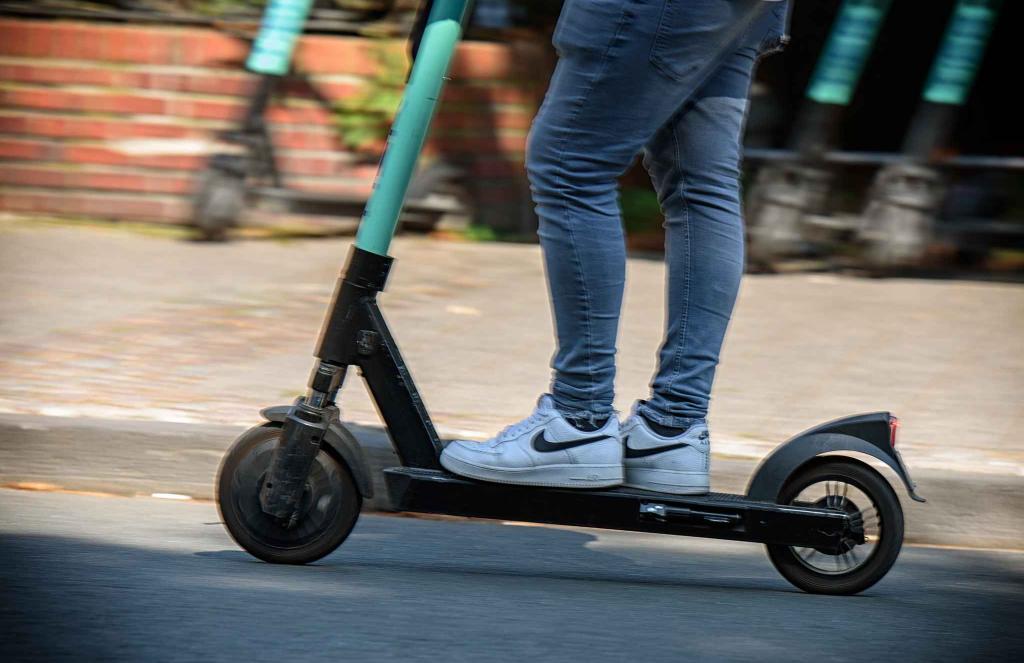Thessaloniki gets ready for its metro launch in November
The underground rapid transit lines have been under construction for almost two decades due to various project delays
 TheMayor.EU logo
TheMayor.EU logo 
E-scooters will now be treated more like other motorized vehicles in Belgium, Source: Dirk Vorderstrasse, on Flickr (CC BY 2.0)
Brussels Region agreed and decided to go even further with restrictions
Starting on 1 July, new and tougher rules have entered into force regarding the use of e-scooters on the streets of Belgium. Citing an increased number of incidents and injuries involving the trendy devices, but also recognizing their usefulness, the authorities have imposed an age limit on who can use an e-scooter. Riders will have to be older than 16.
Additionally, riding on pavements will be made illegal, even at walking speed, and designated parking zones for e-scooters will be created. Likewise, it will be forbidden to have two riders on one scooter. The law was put in place as the use of e-scooters has been linked to a rise in accidents and conflicts with pedestrians.
Although the legislation affects the entire territory of Belgium, it is well known that e-scooters have mostly affected traffic and public spaces in the country’s largest cities. According to Federal Police stats, 533 injury accidents involving these mobility devices were registered in 2021 in Flanders alone – in other words, more than 10 per week.
The new rules apply to all motorized locomotion devices (e-scooters, monowheels, etc). There are exceptions for people with reduced mobility who, for example, drive an electric wheelchair or scooter.
Brussels Region has adopted the new federal legislation, but it has included some additional rules that only apply to its territory, making e-scooters even more tightly controlled there.
8 km/h will be the maximum allowed speed of e-scooters in the pedestrian zone in the city centre and in the semi-pedestrian zone on the Chaussée d’Ixelles between the Chausée de Wavre and Place Fernand Cocq. In all other areas, they can ride no faster than 20 km/h.
“Parents, their children and people with mobility problems no longer felt comfortable in the pedestrian zone. By ensuring that the shared-use pedestrians can only travel at a walking pace, the pedestrian zone will once again become a space for everyone,” explained Bart Dhondt, Mobility Councillor of the City of Brussels, as quoted by The Brussels Times.
What’s more, there will be a limit on how many scooters each operator can have, and how the devices will have to be parked. The idea is to do away with the practice of haphazardly leaving scooters lying about on pavements, cycling lanes and in front of entrances.

The underground rapid transit lines have been under construction for almost two decades due to various project delays

Now you can get your wine in Talence by paying directly in Bitcoin

That’s because the state has to spend money on updating the railway infrastructure rather than subsidizing the cost of the popular pass

Rethinking renewable energy sources for the urban landscape

The examples, compiled by Beyond Fossil Fuels, can inform and inspire communities and entrepreneurs that still feel trepidation at the prospect of energy transition

Now you can get your wine in Talence by paying directly in Bitcoin

The 10th European Conference on Sustainable Cities and Towns (ESCT) sets the stage for stronger cooperation between the EU, national and local level to fast track Europe's transition to climate neutrality.

At least, that’s the promise made by the mayor of Paris, Anne Hidalgo

The underground rapid transit lines have been under construction for almost two decades due to various project delays

At least, that’s the promise made by the mayor of Paris, Anne Hidalgo

Hostal de Pinós is located in the geographical centre of the autonomous region

Despite its church-y name, the district has long been known as the hangout spot for the artsy crowds

Urban dwellers across the EU are having a say in making their surroundings friendlier to people and the environment.

Forests in the EU can help green the European construction industry and bolster a continent-wide push for architectural improvements.

Apply by 10 November and do your part for the transformation of European public spaces

An interview with the Mayor of a Polish city that seeks to reinvent itself

An interview with the newly elected ICLEI President and Mayor of Malmö

A conversation with the Mayor of Lisbon about the spirit and dimensions of innovation present in the Portuguese capital














